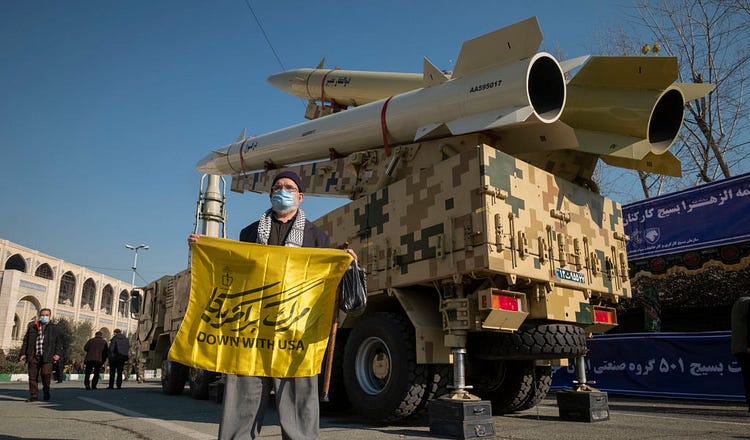‘We Need to Respond to Their Attacks with Force’

An elderly Iranian man holds an anti-U.S. flag while standing under the Iranian single-stage, road-mobile, solid-propelled missile, Zolfaghar Basir. (Photo by Morteza Nikoubazl/NurPhoto via Getty Images)
Matt Pottinger on how to handle the Iranian regime.
40
At points of acute geopolitical crisis, it’s generally a good idea to listen to people with practical experience. Theory is one thing; real-world decision making is another. And too few commentators know what it means to make quick calls with imperfect information in such high-stakes moments.
For years, Matt Pottinger was an observer: a reporter for The
Continue Reading The Free Press
To support our journalism, and unlock all of our investigative stories and provocative commentary about the world as it actually is, subscribe below.
$8.33/month
Billed as $100 yearly
$10/month
Billed as $10 monthly
Already have an account?
Sign In

